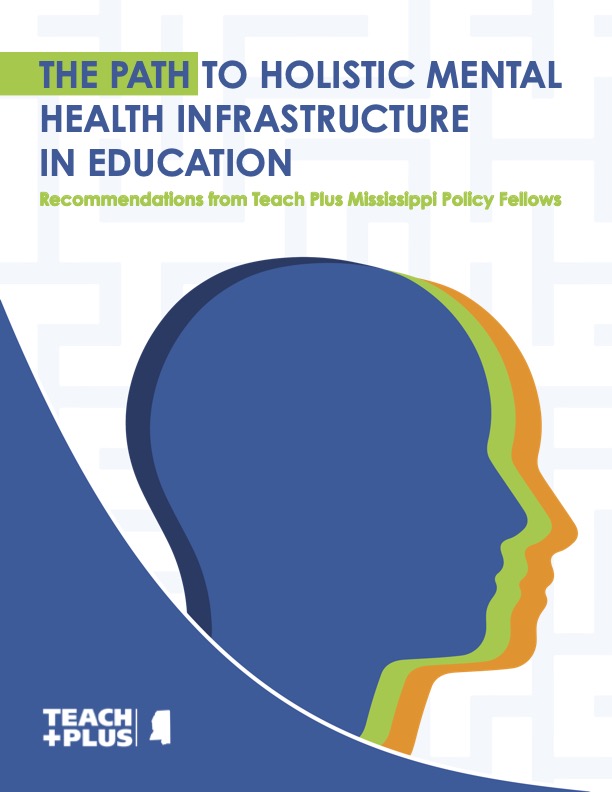RULEVILLE, Miss.—Skylar was constantly being referred to the office for defiance, disobedience and disruption at 14 years old. She was disrespectful to adults in our building and was repeatedly suspended. Many wrote her off as a “bad” student, but her behavior baffled me. I knew there was something deeper going on because I, too, had struggled with depression.
“Are you okay, Skylar?” I asked. “How can I help?”
Perhaps no one had asked Skylar if she needed help, but on that day, she began to open up to me. She told me that she had been molested and raped before and that she had no positive adult in her life. She was home most evenings with older siblings who got high with their friends; So, she barely ate, walked the streets at nights, had unprotected sex with older men, and got high, too. I later discovered that she had run away from home and gone to juvenile detention centers several times.
Skylar’s story broke my heart. We talked, we cried, we laughed, and we hugged. I helped her with schoolwork and provided her with things she needed. While my classroom became a haven for her, I never lost track of the fact that Skylar needed treatment for her depression and anxiety. I could help, but I alone could not do enough.
Mental Health Solutions for Mississippi Students
Research and my own experiences as an educator show clearly that youth with poor mental health struggle with school. In 2019, 35,000 of Mississippi’s children and youth had severe and persistent mental-health needs. In 2022, over 70% of children in Mississippi with major depression went without treatment. This rate trumps the national percentage of 60.3%. Every day, students like Skylar are crying inside, hurting without saying anything, and showing up for someone to notice and show compassion for them. Educators and schools in Mississippi must do more to support them.

First, Skylar must know she is not alone and that there are others around her who are experiencing mental illness. Schools like mine, Thomas E. Edwards Sr. High School in Ruleville, Miss., can hold monthly assemblies that focus on mental illness, the risk factors and symptoms of mental illness, and the negative consequences of poor mental health. These assemblies could bring speakers who have overcome mental illness, and mental-health professionals to speak with students and include information and resources on mental-health services.
If I had not talked with Skylar about my own experience with depression, she probably wouldn’t have been forthcoming with me about her own experience. Schools can also host regular “mental-health” days, particularly during the times of the year when most students are most under stress. On those mental-health days, teachers like me can do different mental-health activities with students such as play games and do word search puzzles, coloring pages, and other arts and crafts projects to provoke open, honest dialogue.
Second, all educators and school staff should complete the Youth Mental Health First Aid training so that all who have contact with students can identify and help students who are experiencing mental-health issues. My colleagues from Teach Plus Mississippi Policy Fellowship recommended this first-aid training in their 2023 brief, “The Path to Holistic Mental Health Infrastructure in Education.” The teachers also recommend that districts establish mental health and wellness teams and increase the quantity and capacity of school counselors to provide mental health support for our students. If I had not taken the training myself, I wouldn’t have been fully equipped to help Skylar and provide her with necessary resources.
Finally, schools like mine can ensure that students have greater access to counselors and mental health professionals. Schools should ensure they have an adequate number of counselors and mental health professionals based on the student population. In addition to having enough counselors, schools should have increased funding for more social workers and psychologists. With teachers and staff having the proper training and enough counselors and mental health professionals, students like Skylar will have access to well-rounded adults who are aware, knowledgeable and capable of providing the expertise, resources and guidance needed to touch the “whole” child.
Skylar was like an onion that I had to peel back one layer at a time in order for me to understand the why behind her what. Now, Skylar is a 17-year-old mom who is trying to figure out motherhood while still being a teen herself. She is learning to understand how important her decisions are for her child as well as herself. She is a reminder that we must meet our students where they are, and that their mental health should be at the forefront of our effort to support students.
Editor’s Note: The student’s name has been changed to ensure privacy.
This MFP Voices essay does not necessarily represent the views of the Mississippi Free Press, its staff or board members. To submit an opinion for the MFP Voices section, send up to 1,200 words and sources fact-checking the included information to [email protected]. We welcome a wide variety of viewpoints.
